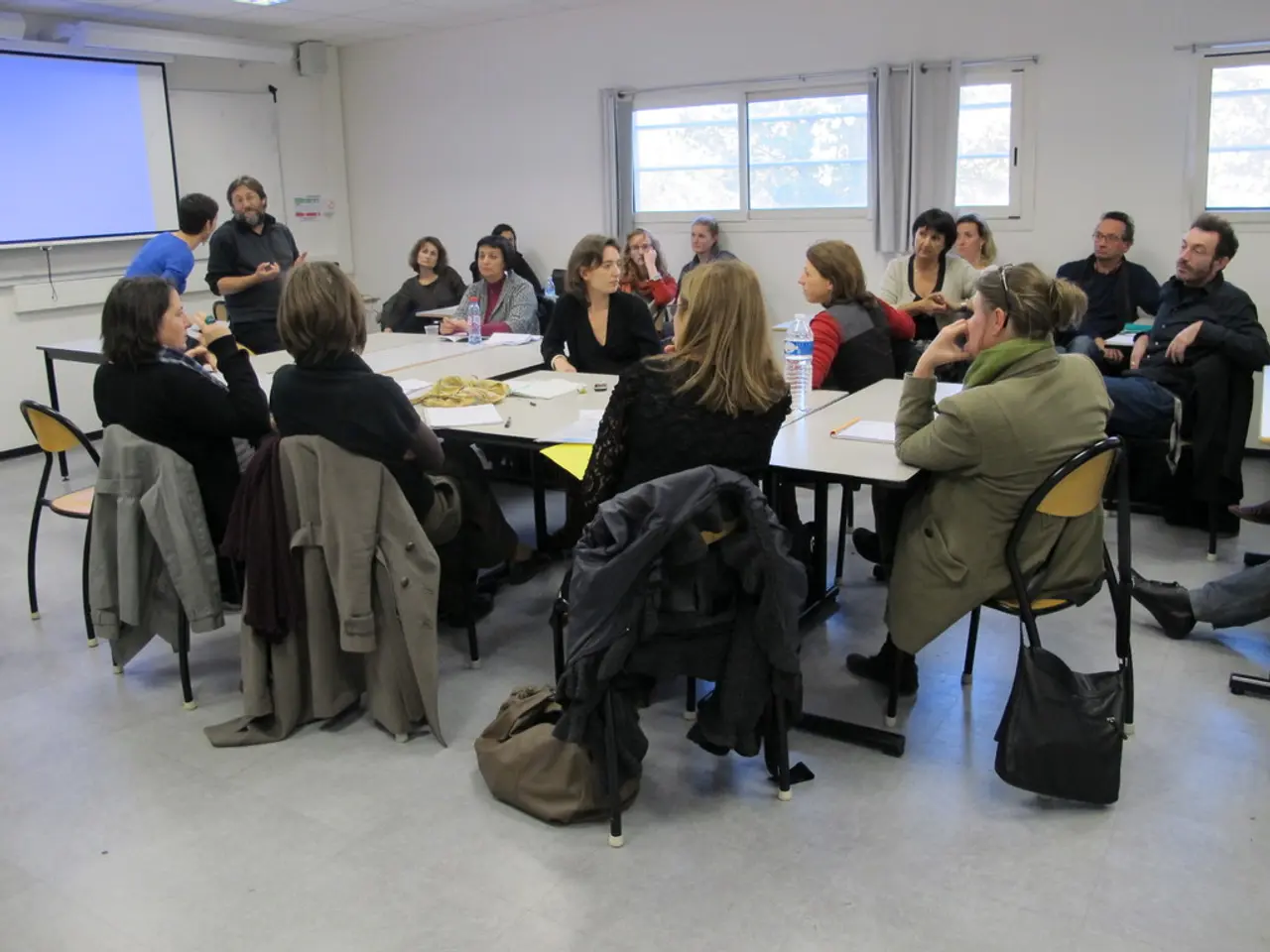Team Relocation Impact on Communication Flow
In a recent study, researchers Jillian Chown and Christopher Liu investigated the effects of a cancer centre's expansion and relocation on its clinicians' workflow. The study, presented at the 2025 AOM Annual Meeting, highlighted the unintended consequences of separating teams, particularly in the context of cancer treatment.
Prior to the move, members of the radiation oncology team visited the treatment-planning room an average of 2.96 times per week. However, after the relocation, the use of the treatment-planning room dropped significantly for everyone, with the most significant decrease observed among those who moved to the new building.
Instead of planning treatments together in the room, the radiation teams increasingly turned to email communication. Email exchanges increased among clinicians who now worked in different buildings by 1 percent, and across all email pairs by 1.8 percent after the relocation.
The study found that clinicians continued to use the treatment-planning room for the most complicated cases. Nevertheless, the separation of teams led to reduced collaboration and communication difficulties among clinicians, which often results in a fragmentation of care. This can hinder the exchange of critical patient information and disrupt teamwork, potentially affecting patient outcomes and clinician satisfaction.
The study also emphasized that while organizational separation might aim to improve focus or specialization, it can unintentionally isolate clinicians, leading to inefficiencies and reduced quality of care. The research underscores the importance of being thoughtful about how organizations are grown and designed, offering clear implications for leaders outside of a healthcare setting.
Interestingly, the study did not investigate the long-term effects of the change in treatment planning on patient outcomes. However, the hospital found that patient satisfaction did not decrease after the relocation. It is crucial to study how the change in treatment planning will affect long-term patient outcomes.
Jillian Chown, an associate professor of management and organizations at Kellogg, states that organizations that are growing or moving can create disruption among employee interactions, affecting both communication and collaboration. The study was conducted by collecting information on 232 healthcare providers' email patterns and badge-swiping data for the two months before and four months after the relocation.
In conclusion, the study serves as a reminder for leaders to consider the impact of organizational changes on collaboration and communication. In the post-pandemic world, it is often left up to the workers themselves to determine which work can be done remotely. However, leaders need to be aware of when it is most necessary for employees to collaborate in person to maintain the integrated and holistic approach essential in cancer treatment.
In the realm of workplace-wellness and health-and-wellness, the relocation of a cancer centre could unintentionally compromise science-based teamwork, as demonstrated by the decrease in on-site collaboration among radiation teams post-relocation. This reduction in face-to-face interaction may affect the quality of patient care and outcomes, as it can hinder the exchange of critical patient information and disrupt teamwork. Consequently, in the post-pandemic world, decision-makers might want to consider maintaining in-person collaboration for roles where a science-based, integrated, and holistic approach is crucial, such as cancer treatment.




